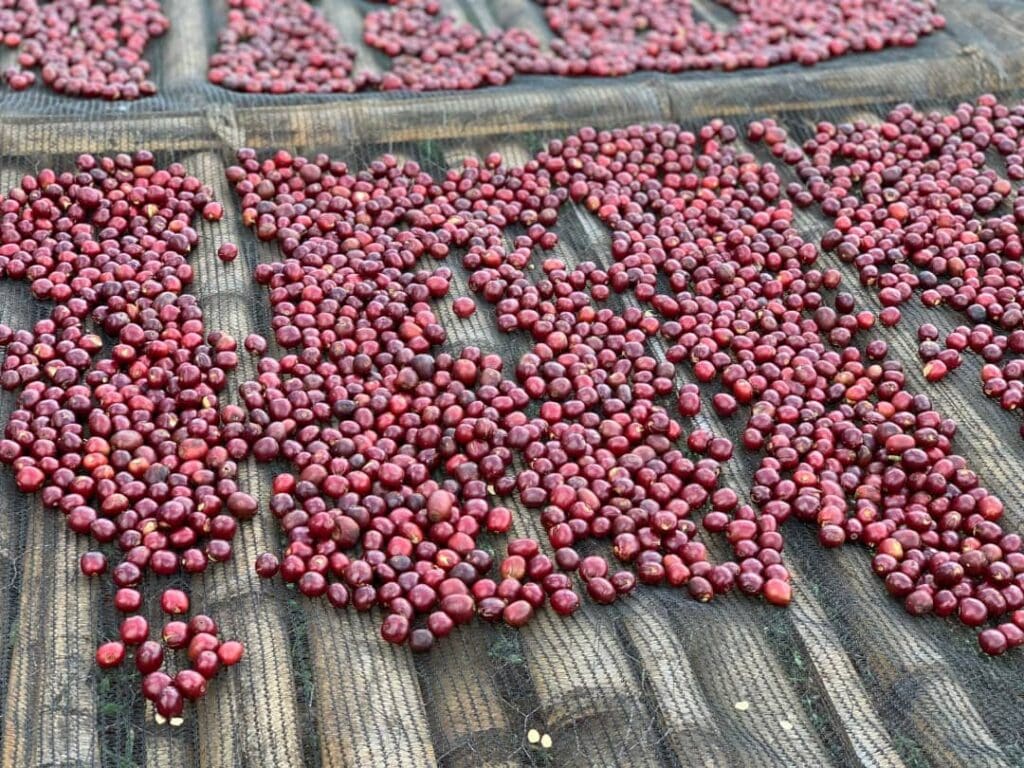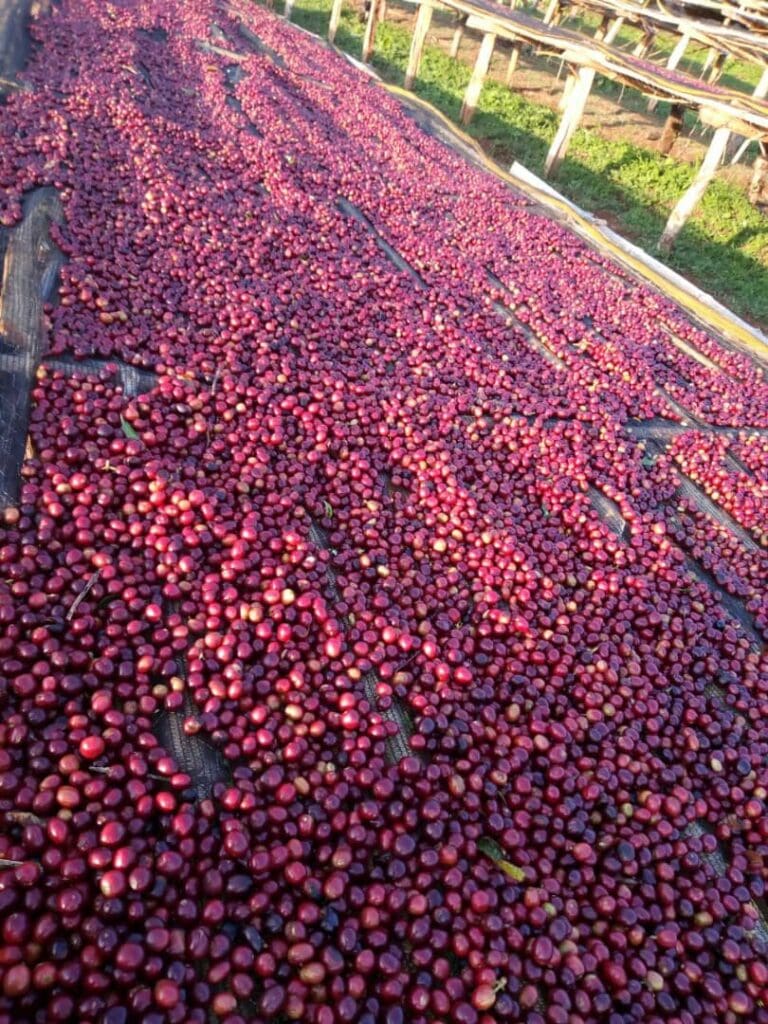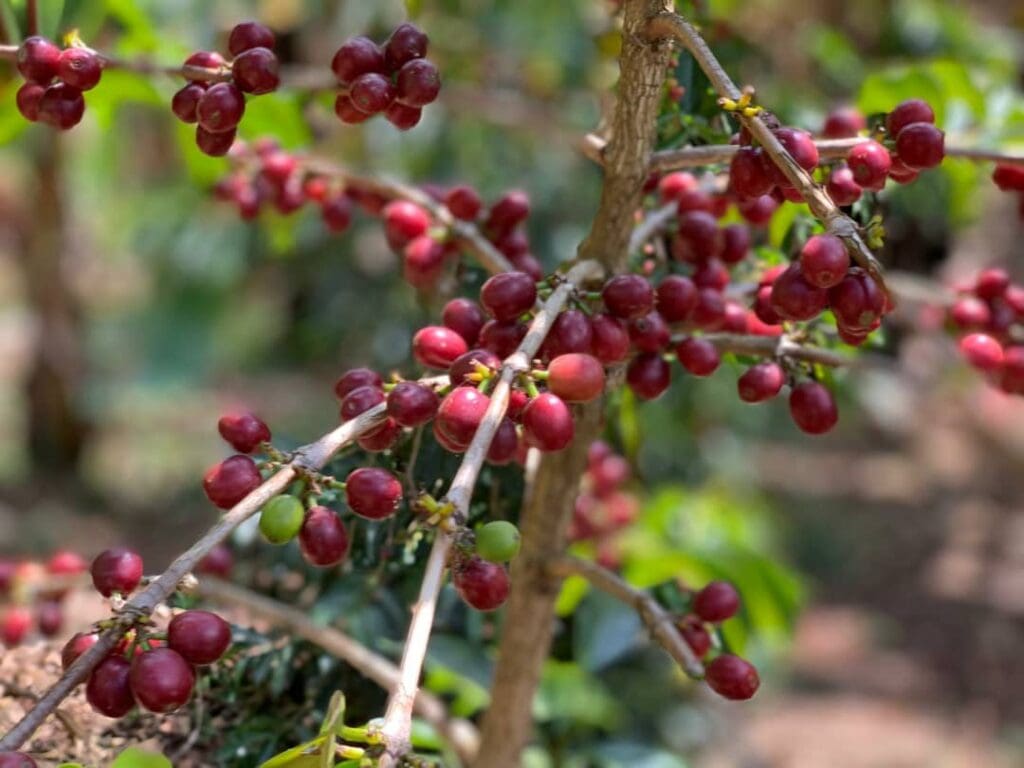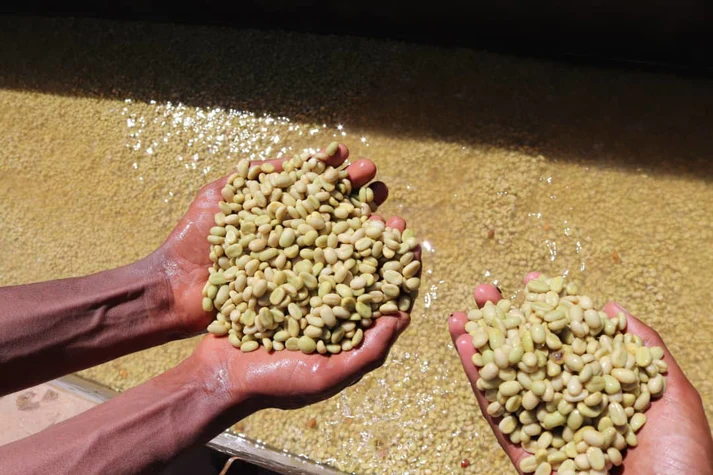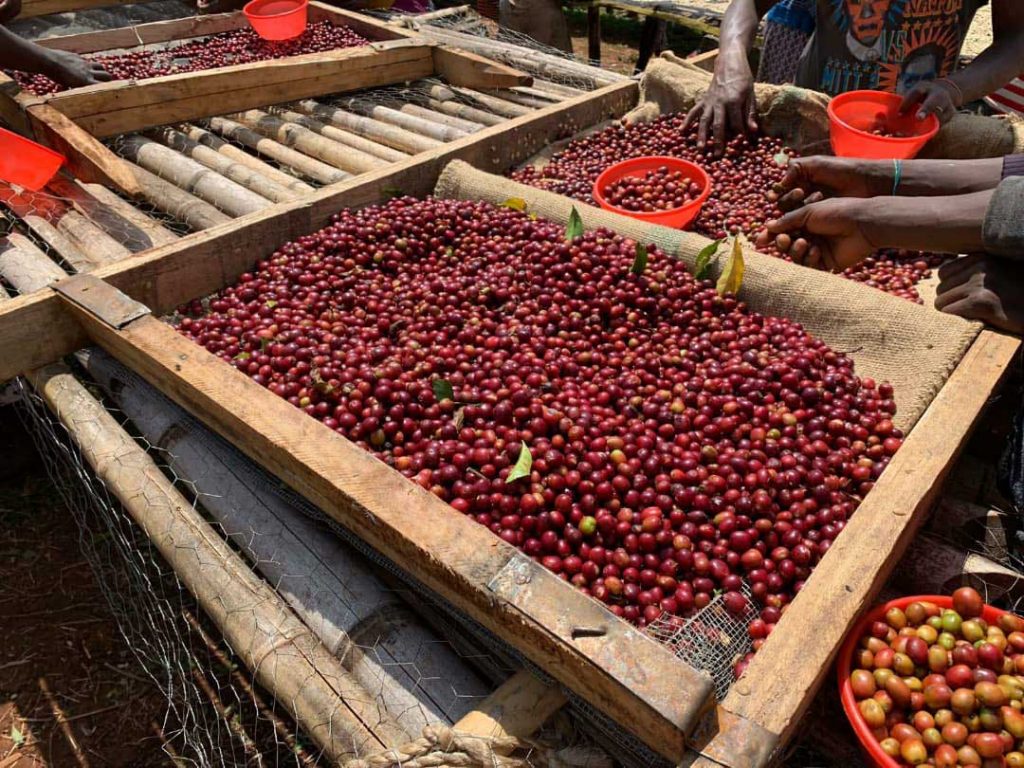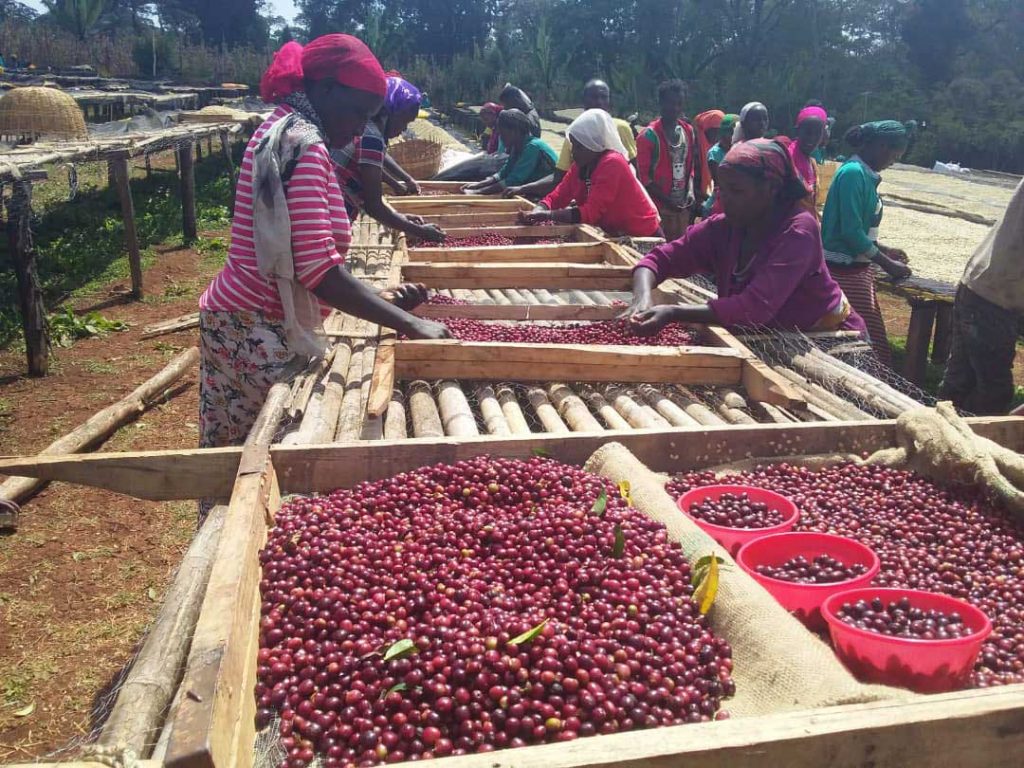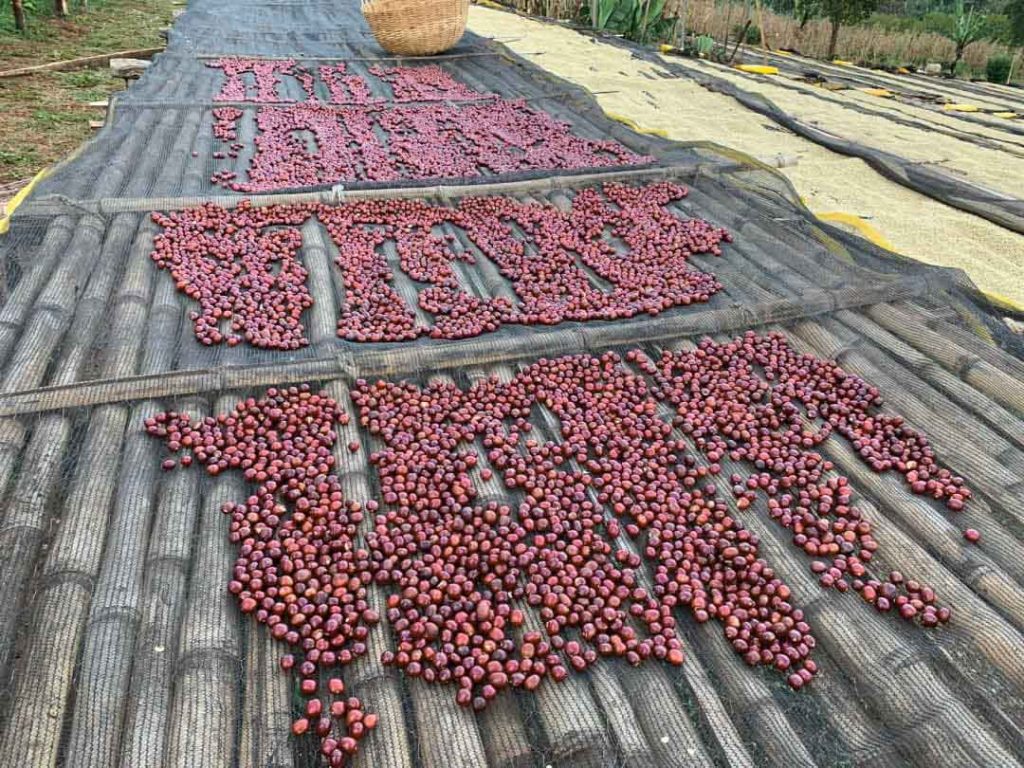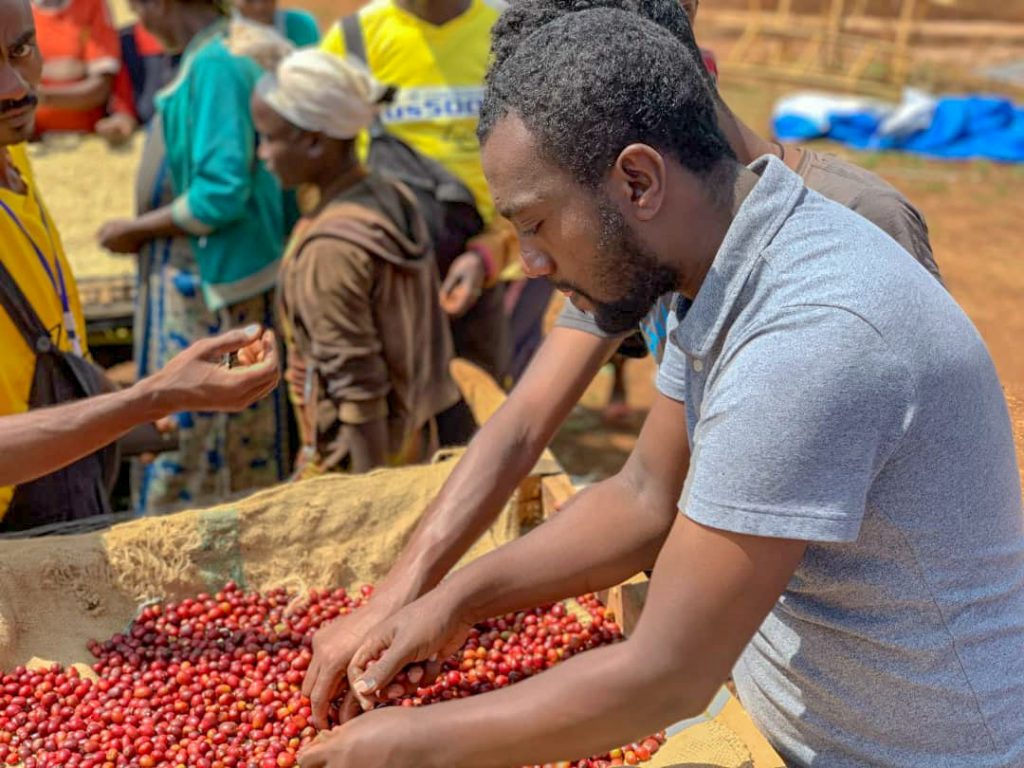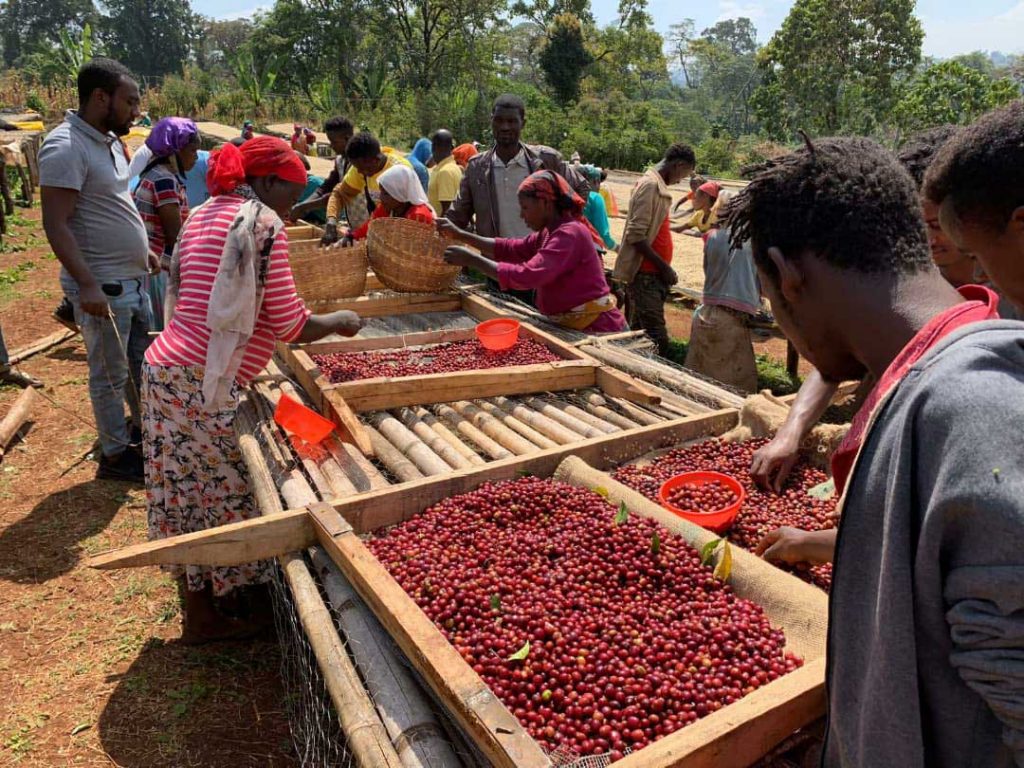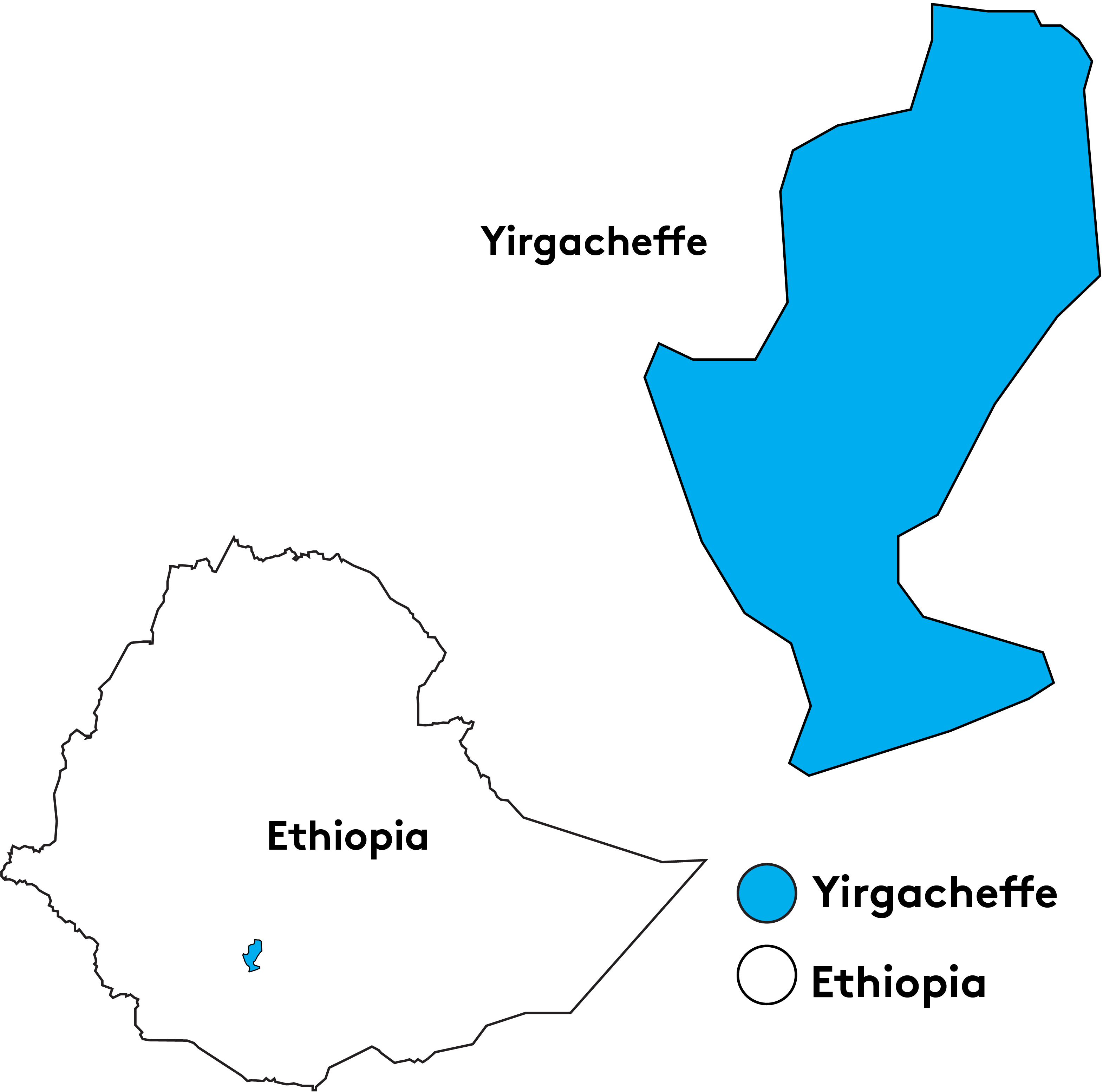Nestled in the breathtaking highlands of Uraga Woreda lies the Gogogu Washing Station, a cornerstone of the Wate Gogogu Village. Owned by Nigusse Debela of SNAP, this wet mill is where 425 dedicated smallholder farmers bring their carefully harvested red cherries, ensuring that only the finest quality coffee is produced.
Guji, once grouped with the Yirgacheffe region and categorized under the broader Sidamo name, became its own distinct coffee-growing region in 2002. The region takes its name from the Oromo people, who have cultivated coffee on this land for generations. Guji’s rich heritage is intertwined with the story of Ethiopian coffee itself, and it is here that Gogogu, meaning ‘dry’ in the Oromiffaa language, thrives in the mountainous landscapes of Uraga.
Uraga, known for its towering elevations, offers ideal growing conditions that, combined with the rich volcanic soil and the unwavering dedication of local farmers, create some of the most exceptional and complex coffees in Ethiopia. The coffee from this region, once lost in the broader classifications, now stands out for its unique characteristics and superior quality.
At Gogogu Washing Station, only the ripest red cherries are accepted. Upon arrival, they are meticulously weighed and sorted to remove any foreign matter. The cherries then undergo a de-pulping process, where the fruit’s tough skin is carefully removed, revealing the seeds within. This crucial step typically occurs within 8-12 hours of harvest to preserve the coffee’s freshness.
Following de-pulping, the beans, still covered in sticky mucilage, enter the fermentation phase. For up to 72 hours, they are left in ceramic tanks—a choice that not only enhances the clarity of the coffee but also accelerates fermentation. After fermentation, the beans are soaked for an additional 4 hours and thoroughly washed to remove any remaining mucilage. The final step involves drying the beans under the Ethiopian sun on raised beds, where they are carefully turned to ensure even exposure to temperature and airflow, reducing their moisture content to the optimal 12%.
This meticulous process at Gogogu Washing Station, set against the backdrop of Uraga’s stunning landscapes, results in a coffee that is not just a product, but a testament to the region’s history, culture, and the tireless efforts of the farmers who call it home.
